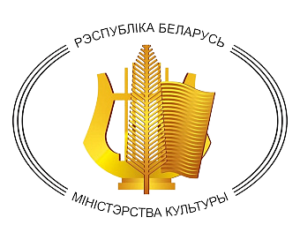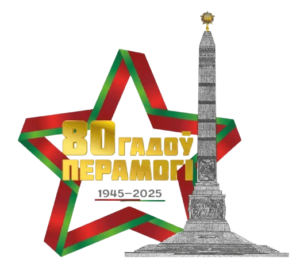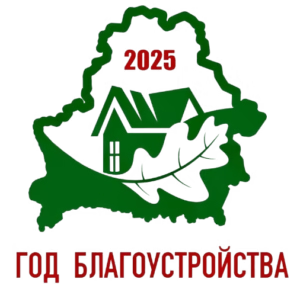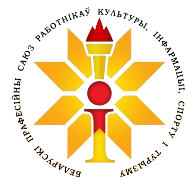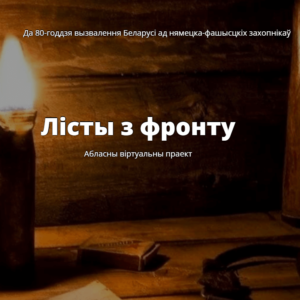The history of the first national poet of Belarus coming to Lida as a candidate for deputies in the Lida-Slobidsky District No. 306
Somewhere out there, from under the heavens, we are thanked by the figure:
“I am grateful to you, Lida! Your ID Lutsevich … ”

Yanka Kupala … We pronounce this name every time we encounter Belarusian literature. After all, of course, behind the
national literature of the twentieth century is this symbolic figure. Belarusians proudly revere their prophet. This year is fully devoted to the Belarusian poet: 135 years have passed since his birthday. Date of birth is also symbolic: July 7, a special day – Kupalie. On this fabulous night everyone dreams of finding a legend – a flower of a fern, a flower of happiness.
It will be in the summer. Now it’s spring in the yard. So, in one of such similar feet Pesnyara walked along the Lida streets. So-so! 77 years ago this event took place. As you can see, today, just for Lidčina, the numbers of 7. (2017, 07. 07 (July), 77 years ago). And it was in 1940. Ivan Dominikovich Lutsevich – Kupala is known for us, lidchan, not only because he is the first people’s poet of Belarus, but also because he was elected deputy for the Lida-Sloboda region No. 306.
Back in the distant 1909, in October, from Vilnius through Lidu Ivan Damynakavich Lutsevich drove to the estate of Benin of Novogrudok Uyezd (now the village is the center of the Novy Dvor business of the Novogrudok district) on the recommendation of Boris Leontievich Danilovich, a Belarusian social and cultural figure who was owner of a private library of “Knowledge” that existed in Vilnius in 1904-1914, 1919-1923. Here Kupala was then the place of the economist.
The second meeting of Yanka Kupala with Lida occurred after the accession of Western Belarus to the BSSR. For this purpose, residents of the city of Lida contributed. On February 15, 1940, the workers and employees of the Lida Railway Node at their first election meeting, and afterwards the entire working Lidchyn, decided: “To sing out Comrade. Lutsevich Ivan Damynikavich (Janke Kupala) to the deputies of the Supreme Council of the BSSR and ask him to consent to run for the Lida-Slobodsky electoral district No. 306 of the Belarusian SSR “.
On this occasion, a short letter-telegram to the address of the Lidchan appeared in the district newspaper Vperyod on February 23. In that publication, the writer expressed heartfelt gratitude to the voters for the honor given to him and announced his consent to run for this district. Further Ivan Dominikovich noted that he could not come to Lida, as he was in Kislovodsk, and informed the readers that he would come in a few days, about what the telegram would give.
A month later, on March 13, 1940, Yanka Kupala visits Lida: he comes to a meeting with voters. Together with him came from Minsk writers Petro Glebko, Ales Kucher, Zelik Axelrod. Guests stopped at the hotel in Suvalskay Street (now Sovetskaya Street) in the former Bristol Hotel. The venerable guests ate in the best dining-room of the city, which the people called “American” – in the former chic restaurant – tsukerni “America”. (This house was located on the corner of Kamenskaya (now Lenin) and Vilenskaya streets under number 19 (now Soviet)).
Confectionery “America”. House Vilenskaya, 19 (later Suval’skaya). The card was printed until 1914.
During the arrival of the beloved poet there was a thaw, a makrates such that it is difficult to walk on the sidewalk in shoes, so as not to soak your feet. And then Valentin Tavlai, a poet, a former member of the revolutionary movement in Western Belarus, a member of the Vperyod newspaper in Lida, ran to the Ardal rubber factory and brought a gift to the dear guest, a pair of brand new galoshes. Bathing for a long time denied, but with a general effort gave in and took a modest gift. This fact is well remembered in Lida and causes a modest sense of honor in Lidzyan. Even the Lidian poets about this case make up poetry.
On the first day, Yanka Kupala inspected the city. Suval’skaya – the central highway of the city. It began near the ancient castle. Along it stood a church, a synagogue, an Orthodox cathedral. On both sides of the street, administrative buildings, mansions and shops were crowded together. Here there were also three cinemas – “Edison”, “Era”, children’s – “Cinema small”. The venerable guest was accompanied by young Western Belarusian poets Valentin Tavlai and Nina Taras (employees of the Vperyod newspaper of the Vperyod), Anatoly Ivers (sapr. Misko Ivan Darafeevich), an employee of the Slonim newspaper Svobodnaya rabota and Petrus Granit (Ivan Ivashvich Ivan Petrovich) who at that time worked as chairman of the Belitsa village council of the Lida district. The last two invited to the meeting Valentin Tavlai, so dear Ivan Damynikavich create a pleasant environment. And indeed, as Anatoly Ivers recalls: “Kupala was pleased with the meeting with us; His eyes shone with joy. ”
The first meeting with voters took place in a festively decorated railway club on Kalyaevay Street (Railway), now Trukhanova. (Until the end of September 1939 there was a club-restaurant of railwaymen “Agnisko kalyayova” in this building, after its liberation it was converted into a club of railwaymen. It was a long one-storey wooden building, which consisted of a hall with a stage, a library, a reading room, a billiard room, a buffet and Later, on the first day of the war, a German bomb hit him, and the building burned down. “By 2010, Republican” Dozhinki “in place of the former railway club had warehouses and a railway unloading site of the Lida food factory concentrates). To see and listen to the people’s poet gathered more than 700 people. Many people were in the yard in front of the club: workers, employees, teachers – were happy to see Kupala. Minutes of tense silence, and the hall stirred a long ovation: Yanka Kupala ascends to the stage!
Vladimir Urbanovich, the former student of the “railway” secondary school No. 3 in Lida, recalls: “… Since Y. Kupala was running for the Lida railway constituency, the meeting was held in the railway workers’ club, and our school was instructed to give a concert after the meeting. Thus, I was fortunate to be at this evening, to see and hear the first and last time Yanka Kupala. In Lida, Yanka Kupala arrived on March 13, 1940. The meeting was held the next day, March 14. As I remember today it was Thursday. The whole day at school, those who participated in the concert, rehearsed, prepared … The mood was elevated … I remembered a long table, covered in red. Behind him are people in the gymnasiums and railway uniforms. Among them in the center … sat Kupala, the same as in portraits in school textbooks: smooth hair, good, gentle eyes and something that made him dear and dear to the viewer. Something people said in the gymnasium, railway uniform, something Yanka Kupala said. … (Urbanovich Yanka Kupala and Lidchyna Street, Vperyod Newspaper – 1990 – June 12).
… The room was warm. Ivan Dominikovich does not undress, only unbuttoned his collar. On the face of J. Dome, the emotion is struggling with some kind of indisposition: the forehead became covered with sweat, and the poet wipes him from time to time with a handkerchief. Everyone feels that the poet is sick, that he has a high fever. And the fact that Y. Kupala, regardless of poor health, came to his voters, fills the hearts of those present with deep gratitude and even greater love for him. The speeches at the meeting were made by painter Aron Frenkel, the head of the locomotive department Ivan Vorotnikov, conductor Mikhail Gaiduchak, poetess Nina Taras and others. All of them spoke with love about Yanka Kupala. The teacher of Stera (Kira) Brant-Tawlai (the first wife of V.Tavlaya, the Germans shot her in October 1941, possibly buried in a mass grave north of Lida) warmly welcomed Yanka Kupala on behalf of the intelligentsia of the city. Poet Nina Taras read poems dedicated to her favorite poet. A young, slender Valentin Tavlai inspired and excitedly read his poem “Red Urnas bring joy” in which there are such lines:
Look, there is guslar
to you from afar –
who comes longing step
cherish the old trail,
looseness wing
sweeps away your dreams falcon
And on the way – your martyr-poet.
All present, hiding their breath, listened to the People’s Poet. In the whole figure of Yanka Kupala, in every gesture of his – no pose, one fascinating simplicity of a big man. He read his poems “Nakarmilіsya panskau grace”, “With a new thought”, etc. And, addressing to his voters, J. Kupala said: “From the bottom of my heart I thank you for the honor given to me, the Soviet writer. More than 35 years I served my people. I promise you honestly to serve the people until the end of my days. Before the Great October Revolution I sang about the grief of the Belarusian people, about its bitter misfortune. In the Soviet country I sing about the happiness of a free people, about its flourishing in a friendly family of the peoples of the USSR … this year I came to the places I am well acquainted with. Not far from these places I was born, here I suffered and cried over the fate of my people. Not far from these places – in the Novogrudok district – I served as a farmhand at the Pan. And for 20 years my feet have not walked on this earth … I remember you oppressed, deprived. All the more great is my joy when I see you now free and happy … “The last words of the people’s poet are drowning in a storm of applause and exclamations. The audience applauded, the poet bowed, then went to his place, waved his hand, apparently thanked for the applause, once again bowed and sat down.
After the work of Y. Kupola, the students of school No. 3 read. And suddenly a little girl climbed onto the stage. She was so small that her head did not reach the edge of the table (this is the six-year-old Nina Tawlay, sister of V. Tavlaya).
Nina Tavlai-Radyukevich (lives in Vilnius (the city of Elektranai), photo of 2016)
The girl began to speak in a low, thin voice. Then Yanka Kupala rose from his seat, went out from behind the table, took Nina under his armpits and put it on the table. At first the child was confused, and afterwards, emboldened by the gesture of her elder brother Valentine Tavlaya’s hand, read Kupolov’s poem “The country was wrapped in flowers”. Finished, turned to face the presidium and bowed. Yanka Kupala, very moved, embraced her and kissed her. The girl jumped off the table and ran into the hall, which thundered with applause.
On the afternoon of March 14, Yanka Kupala met with the peasants of Lidchyna in the “Edison” cinema. (Now there is a square and a monument to F. Skorin.) To see his favorite poet, peasants from the neighboring villages of Lipnishki, Berdak, Gonchary, Belitsa, Belka, Krupava, Parachana and others went to Lida a pawn and drove for carts tens of kilometers. Around the cinema, peasant carts and horses were piled up, like in a big bazaar. On the street and in the hall a large crowd of people – there is nowhere to fall an apple. The trustee of the candidate, writer Ales Kucher told the audience about the life and creative path of the people’s poet. Peasant orators from the bottom of the heart told about what the works of J. Kupol were in their difficult life. The teacher from Trakelya Viktor Antonchik remembered about his long-standing meeting with the poet in Vilnius. At last, the hall was exhausted: on the edge of the stage stands He, in a coat with a chalet fur collar, shocked, dalicates and good. Kupala thanks her for her trust and, in a low voice, sings some of her poems to Western Belarusian motifs, among them: “You are from the West, I’m from the East,” “I’m nurturing with grace …”, “Glory to you, army!”, “Leave, village, with a clear reality … “. The gathering is over, but nobody is going to leave the cinema. Before the Dome new and new people are coming. Who reminds about the meeting, who is waiting for advice, and who silently wants to shake hands. Kapala went to the exit on the narrow, live corridor …
In the evening of March 14, the singer of the national dumas was invited to a meeting with readers in the city library, which was next to an old castle (approximately where the “Jubilee” store is now, perhaps the remains of the former library are the premises where wind instruments are musical musical instruments). At that time there were only Polish and Jewish books, there was absolutely no Belarusian and Russian literature. Yanka Kupala was interested in the library’s book fund, which read, gave advice, promised to help solve a number of problems. After the performance, Yanka Kupala signed his book “Above the River Oressa” (4th edition, Soch., 1937) in memory of the meeting and donated it to readers. It was the first book in the Belarusian language in the city library in March 1940! It’s hard to believe, but it’s a documentary fact.
Cover of the book “Above the River of Oressa”
To the memory of the exciting meeting, the library staff presented the guest a collection of poems by the famous Polish poetess Maria Konopnitska Poetry (in Polish). Later, Y. Kupala made a lot of efforts to replenish the library fund of the city library. And already in May 1940, more than 4000 books in Belarusian and Russian were received here. Thanks to the Dome, the issue of funding the library was positively resolved. In June, the library opened a children’s library with a book fund of about a thousand books in Belarusian, Russian, Polish and Hebrew.
On March 15, in the biggest auditorium of the city – the cinema “Era” – the final meeting with the urban intelligentsia was held.
The former Palace of Culture – formerly the cinema “Era”, where Yanka Kupala performed
This building was located behind the building of the former library named after J. Kupola. (Now there is an emptiness in the direction of Lida pishekontsentratov, the building was destroyed after the war in 1941. Later the house was built here, which became the House of Culture, but also, in the late 1980s, it was demolished because of its weak masonry). It was a great literary evening. A report on the state of Belarusian literature was made by a critic from Minsk Ales Kucher. His poems were read by Yanka Kupala, Peter Glebka, Zelik Axelrod, Valentin Tavlay, Nina Taras, Anatoly Ivers, Petrus Granite. This was the first festival of Belarusian poetry of this scale in the pre-war Lida.
In addition to local writers, there was also a secretary of the Komsomol city committee, Lozinsky. Before leaving, Yanka Kupala met with a group of young poets who gathered here from all over the Baranovichi region. The conversation was sincere, heartfelt. He was interested in everything to the smallest detail, how they lived; where and how he had to publish, asked about life, about the life of farm laborers for Polish time, about the life of prisoners, astrozhnik. Apparently, Kupala collected materials for the new work.
In Lida, he said more than once that before the “Westerners” he feels himself in debt, since he wrote little about their lives. Petrus Granite brought with him a bundle of old newspapers and magazines, where his works were published. Kupala closely watched these publications, published in Belarusian in Vilnius until September 17, 1939. Petrus Granit recalls: “Yanka Kupala was old already in those years, but seemed very domesticated as a native. So the difference in the years was not so. He spoke with us cordially, sincerely.
To think, it’s a folk poet, but he says that he himself was a simple country man. ” Then Ivan Dominikovich breadbasket invited P. Granita, V. Tavlaya, A. Ivers to have lunch together in the best dining-room of the city, the so-called “American”, the former chic restaurant. Orders all four-course dinner, with a glass and beer. If the young poets were going to pay, he interrupted them: “Guys, guys, I probably have more money …” In farewell to each of the poets J. Kupala presented his books with autographs. V.Taylaiau presented the poem “Above the River Oressa” with the inscription: “To Comrade Valentina Talayu on the memory of the meeting in Lida. Yanka Kupala. ” As later T. V. Tawlay recalled that “this book along with other expensive documents of my life irrevocably perished in the war.
Remembering the destroyed booklet in the green cover, I always feel a sharp pain: never Yanka Kupala ever sacrifices either me or any of us of his book … “. P. Granit received a collection of poems “Belarus Orderly” with an autograph: “Dear Petrus Granita for a good memo about our meeting in Lida. Yanka Kupala. Lida. 15.3.40. “Anatoly Iversu got a volume of selected poetry.
On March 24, 1940, Yanka Kupala was elected deputy of the Supreme Council of the BSSR from the Lida-Sloboda electoral district and he was given deputy ticket No. 306.
Deputy ticket and Yanka Kupala’s certificate for Lida-Sloboda electoral district No. 306 of the Supreme Council of the BSSR
On March 27, 1940, the newspaper Izvestia published a letter from the people’s poet My Voters.
Letter from Yanka Kupala to Lida voters
In this small document, Yanka Kupala expressed his great joy with the results of the elections in the western regions of Belarus: “What a great joy for me, a writer who wrote songs about his native Belarusian people for 35 years! I am deeply grateful to my voters – the workers of the Lida region, who have given me the high honor of being elected to the Supreme Council of the BSSR. Until the end of my days I will faithfully serve the people, the great cause of Lenin … “Such feelings of the poet are understandable if we recall the repression of the 1930s in relation to the creative intelligentsia, during which he miraculously remained at large.
Resolution on the perpetuation of the memory of the People’s Poet of Belarus Yanka Kupala with the name of the city library in the city of Lida named after Yanka Kupala.
Soon after the Victory over fascist Germany, the Council of People’s Commissars of the Byelorussian SSR and the Central Committee of the Communist Party (Bolsheviks) of Belarus adopted a resolution on August 5, 1945 “On perpetuating the memory of the People’s Poet of Belarus Yanka Kupala.” Among other items was this: “To assign the name of Yanka Kupala to the city library in the city of Lida.” On this occasion, in September 1946, a group of writers and scientific workers came to Lida, including the wife of Y. Kupola, the director of the literary museum of the poet Vladislav Franzany Lutsevich, the writers Peter Glebka, Valentin Tavlai (senior research officer of the museum) and Vladimir Ogievich, on behalf of the Union writers and the Academy of Sciences of the BSSR to take part in the solemn act of conferring the city library named after Yanka Kupala. Guests from Minsk brought and presented gifts to the library from the Yanka Kupala Literary Museum. In the reading room, a photo exhibition and an exhibition of books dedicated to the people’s poet was organized. The district newspaper “Vperyod” published September 29, 1946 the literary page “Yanka Kupala is a great fighter for the blessing of the Belarusian people”. On September 17, a meeting of Minsk residents with students and teachers of the pedagogical school was held. The audience listened to the report “The idea of the reunification of the people in Belarusian poetry”, with which V. Agievich spoke. Among the students there were many poets-beginners. Glebka reviewed the poems of future teachers, gave good advice. Guests read their poems, as well as works of Ya. Kupola. Poet-novice Nikolai Voronin read his own poems. In the evening of September 17, guests from Minsk took part in the solemn meeting of the city executive committee together with the party and public organizations of the city in connection with the seventh anniversary of the reunification of the Belarusian people.
The solemn meeting of the city’s workers dedicated to the awarding of the Yanka Kupala city library took place on the evening of September 18. This event was attended by workers, employees, pupils and students of the senior classes. Many came to the meeting from the surrounding villages. With the report “Yanka Kupala – People’s Poet of the BSSR” made by Vladimir Agievich, Valentin Tavlai acquainted those present with the participation of J. Kupol in the struggle for the reunification of our people, illustrating with interesting facts the wide popularity of the folk song in Western Belarus, read his poems dedicated to the day of September 17 and memory of Yanka Kupala. One of the poems was called “The Memory of the Yanka Kupala”, and was written in 1945. Glebka, a poet and scientist, in his speech noted the great importance of the high-jazz poetry of Yanka Kupala. Vladislav Franzevna Lutsevich shared her memories of the “unforgettable Vanya”. On behalf of the collective of workers and readers of the library, its head Tatyana Zhyglanova spoke. Thanking for awarding the name of the great Belarusian poet and educator to the institution, she assured that this high honor would be justified by practical work to popularize the non-prolific works of Yanka Kupala, the daily struggle for the further cultural growth of the city’s working people.
Among those present: Valentin Tavlay, Vladislav Lutsevich (wife of Yanka Kupala), Petro Glebka, Vladimir Agievich, workers of the Lida City Library named after Yanka Kupala. The picture was taken on the day of assignment to the Yanka Kupala library on September 17, 1946.
Among those present: Vladislava Lutsevich (first row, middle), workers of Lida City Library named after Yanka Kupala. The picture was taken on the day of assignment to the Yanka Kupala library on September 17, 1946.
By the decision of the City Executive Committee in September 1946, Glass Street was renamed Yanka Kupala Street. It adjoins the small river Lidzeik. Now on this street there is a beautiful building of the city House of Culture, in which there is a branch of the Yanka Kupala city library – a children’s library with a cozy reading room and a spacious one. In June 1947, the fifth anniversary of the tragic death of Yanka Kupala, a public room of the national poet opened in the city library. There was arranged a large exhibition about the life and work of the immortal poet, decorated with his works; exhibits gifts to the library from the museum of J. Kupola. Visitors were interested in the album “Yanka Kupala – our deputy”: in this album photos, newspaper clippings, memories of the participants in the meeting with the poet, drawings of bathing places in Lida, made by the hand of the amateur artist, local historian and collector Alexander Kasperovich were collected. In 1956, this artist, who designed the bathing room, went to Poland. Unfortunately, the fate of valuable materials about Yanka Kupala is unknown today.
On September 14, 1950, peasants from the villages of the Dubrovensky selsoviet organized a collective farm at their general meeting. The farm was named after its first deputy Yanka Kupala. It lasted until consolidation, when on May 16, 1952 joined the collective farm Michurin. By the way, this name has nothing to do with the history of our region. It is still necessary to restore the original name of the farm.
In 1955 a new standard cinema “October” was opened in Lida. The building of the former cinema “Era” (Sovetskaya street, 16) was reconstructed and given to the Yanka Kupala city library: on the first floor there was a children’s library and other cultural institutions, and the entire second floor was reserved for the Yanka Kupala city library. When everything was ready, the head of the library Lyudmila Zelinskaya invited Lida to a housewarming wife of the poet VF Lutsevich. And on June 29, 1956, a literary evening was held in the city House of Culture (the building was on the modern street of Tavlaya and was demolished in the late 1980s). The wife of the poet Vladislav Franzevna Lutsevich, the director of the poet’s museum, as well as the Russian poets Mikhail Kalachinskiy, Anatoly Astreiko, Roman Sobolenko, came from Minsk.
Vladislav Franzevna Lutsevich presented the city library with a large, oil-painted portrait of Yanka Kupala by the People’s Artist of the BSSR Valentin Volkov (1881-1964), who was well acquainted with Ya. Kupol. The portrait was painted in 1947. (Valentin Volkov wrote two portraits of Yanka Kupala, both portraits were written according to the same picture made by Volkov from nature during the life of the poet.) Today, one of the portraits of 1945 is in the Yanka Kupala State Literary Museum.)
Portraits painted by the artist Valentin Volkov from the nature of the Poet in 1945 and 1958
Vladislav Frantsevna also presented the library with the album “Belarusian Folk Ornament”. On the back of the title page of the album, she made the inscription “From the Museum of Yanka Kupala. Ul. Lutsevich. 29.VI.56. “But this relic is still kept in the reading room of the library (Leninskaya Street, 10).
The album “Belarusian Folk Ornament” and a gift inscription of the poet’s wife Vladislav Lutsevich.
After the report on the life and literary and artistic activities of Yanka Kupala, the Belarusian poets present at the evening read their works dedicated to the memory of the national poet. At the evening, Vladislav Frantsevna, his faithful companion, also appeared with interesting pathetic memories of the poet.
By the end of the 1980s, the only building in Lida was kept, where in March 1940 Yanka Kupala performed. This is the former House of Culture. Unfortunately, this house was not left to us by history either. Today’s Palace of Culture was commissioned in 1995, and a modern look was received in 2010. There, among other things, there is a children’s library – a branch of the Lida Regional Library. A similar fate befell the former building of the Yanka Kupala city library. A remarkable event for the residents of the city and the district was the opening of a new building of the Central Regional Library named after Yanka Kupala, which was held on July 25, 2009, on the second day of the regional economic forum. Deputy Minister of Culture of the Republic of Belarus VI Kurash, Head of the Department of Culture of the Grodno Region Executive Committee A.Ch., attended the opening ceremony. Loiko, the district leadership and numerous foreign guests-forum participants. And on the site of the former library, after the repair in 2010 there is the company store “Vityaz”.
77 years have passed since those memorable days, but even today the lyidzhae are proud of the fact that one of the pages of the life of the great Belarusian song is directly related to their city, to the history of their native land. Lidzans are rightfully proud of their famous deputy, because the central library bears the name of an immortal poet. There is also Yanka Kupala Street in Lida. True, it can hardly be called an alley, because it includes only the House of Culture. It would be worth thinking about how to somehow perpetuate the places where the classic of our literature pronounced his fiery words, where his Ladies greeted him so sincerely and warmly. It would be very pleasant and honorable that a monument or bust to the first deputy Lidzian in the Supreme Council of the BSSR and his beloved poet be established also in the city of Lida. I would like those who met with Y. Dome to write their memoirs (although hardly anyone left the witnesses?) And thereby complement the human image of the outstanding son of the Belarusian people, which is so necessary to preserve the noble memory of the admirers of the immortal talent of the Yankees Kupaly.
Despite the many vicissitudes of life, Kupala with us, because there are his works that are translated into many languages of the world, which are read and perachytyvatstsa us from year to year. What we do is not so much for the Dome, as for us. This can prove the words of the outstanding Belarusian writer Vladimir Korotkevich: “Do it not for him, because the best monument to him is our hearts and his songs that live in them. Do it not for him, because his fame is not ўзвялічаць monuments. Do this for yourself, so that we are not accused of ingratitude, of poor memory, of lack of great respect for your best poet, without which every people is not living. ” These words should become the motto of perpetuating the memory of the first People’s poet of Belarus Yanka Kupala.
(The material is composed of archival publications placed once in the then issues of the regional newspaper Vpered, the modern Lida newspaper, Lida chroniclers, etc. The author expresses gratitude for the photocopies sent to the State Literary Museum of Yanka Kupala).
Alexander Khitrun,
scientific employee of the literary department of the Historical and Art Museum.

















